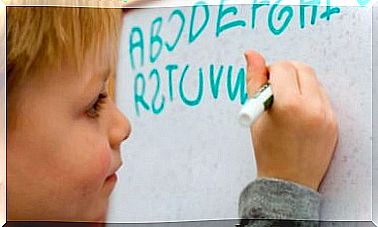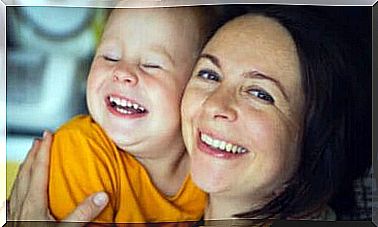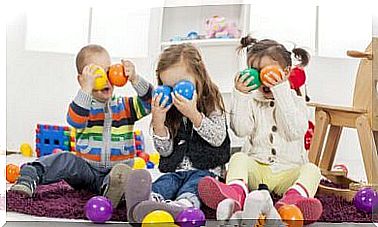Tips For Stimulating Babies To Start Talking
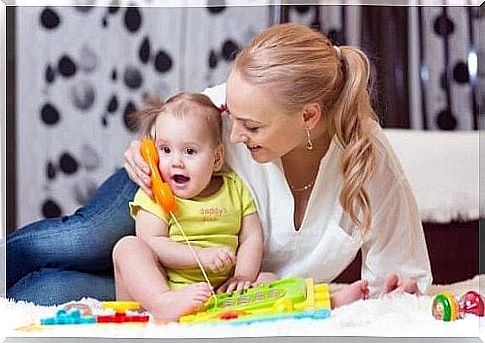
After months of just hearing baby dinghies, the special moment comes when you hear your little one utter his first word. Although this process is a natural part of the development, you can also stimulate babies to start talking in various ways. And that’s what we want to talk about in today’s article.
Learning to speak is a process that takes a long time. In fact, young children do not begin to form sentences in 2 or 3 words until they are two years old or older.
However, you can help your child in this process from day one, and your commitment can make a big difference.
Here we offer some suggestions on how to stimulate this exciting process. And do not forget to always praise your child for his or her efforts!
Tips to stimulate your baby to start talking
1. Start early to entice the child to start talking
Although it may seem pointless to talk to newborn babies , it is important to know that their ears and brains respond to sound already when they are born.
This means that the more words babies hear, the more their speaking ability will develop. Even if babies do not understand what you are saying for the first few months, they will still enjoy your voice and your smile.
This strategy is very beneficial for babies so we recommend that you talk to your little one as much as possible. Babies absorb much more than you might imagine.
Parents play an important role in developing their children’s language. Learn to talk to your baby properly and he or she will start talking as soon as possible.
2. Read a book together
Reading books with your baby is a great idea. Of course, you should not expect the baby to pay special attention to the action. He or she does not have to worry much about the story itself. This is more about having a fun shared experience.

Spending time together is a key to inspiring children to have a larger vocabulary and to get used to the language at an early age.
All of this contributes to an early understanding when it comes to starting to talk. Soon your little one will start moving his mouth and making small noises as if to talk.
Dangle with your baby
When your baby is babbling – hang on, as if you were answering. Repeat the sounds and rhythms that your baby makes, as a kind of imitation game.
Remember that your baby will love to capture all your attention, play and imitate you. You can also introduce new sounds to the play to capture your little one’s interest even more.
4. Respond to your child’s attempts
When your baby is a little older and still can only communicate one word at a time, remember to respond with whole sentences. If your little one only uses sound, you should answer by using the correct syllables.
Even if your child still cannot form whole sentences or use the right words, you will create an opportunity for learning by answering correctly.
5. Repeat words when the child is about to start talking
Repeating children’s words will also contribute to their language development. If you show the child a thing and repeat the word for that thing several times, your child will begin to associate the thing with the word.
Gradually, the child will have a stronger connection between the matter and the word, and also begin to pronounce the word. As we know, babies learn by imitating. The more you repeat words in front of them, the more they want to imitate and learn new words.
6. Relax and be patient
Children often feel their parents’ worries. This can be an obstacle when it comes to creating the optimal environment for greater progress in children’s development. Talking requires courage. So relax, be patient, and trust your baby’s innate predisposition for development.
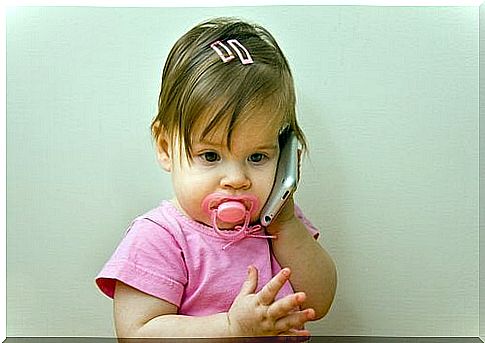
What many parents experience is that their children’s verbal abilities arise overnight. All of a sudden, a kind of linguistic explosion takes place, and you see the child start talking like never before.
But if you feel that your child is delayed in their language development, you can always seek advice and help from a specialist.
Finally, do not forget that all children develop differently and at different rates. This of course means that each child also starts talking at his or her own pace. During this early stage, it is important to try to use proper language when talking and singing with your child.
We are confident that these suggestions, along with your desire to share everything with your child, will speed up the learning process. Before you know it, you will hear your little one uttering his first words.






